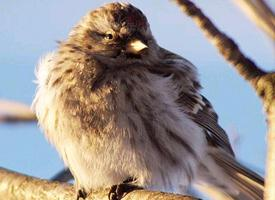
Also known as
- Pěnkava domácí
Weights and measures
| Length | from 14 to 16 cm |
|---|---|
| Weight | from 18 to 29 g |
| Wingspan | from 24,5 to 28,5 cm |
State of endangerment
| Non Endangered |
Animal description
The Eurasian chaffinch (Fringilla coelebs), commonly known simply as the chaffinch, is a small passerine bird that is part of the finch family, Fringillidae. This bird is prevalent across Europe, Asia, and parts of North Africa, with migratory populations moving to southern regions during the winter months. The chaffinch is a highly adaptable bird, found in a wide range of habitats including forests, gardens, parks, and farmland.Adult males are renowned for their striking plumage, especially during the breeding season. They display a range of colors: a blue-grey cap and rust-red underparts, along with a greenish rump and tail. Their wings are marked with a distinctive white pattern, which is visible during flight and contributes to their identification. Females and juveniles, on the other hand, are more subdued in color, primarily featuring shades of brown and grey, which provides them with camouflage among the trees and undergrowth where they forage.
Chaffinches have a robust body shape typical of finches, with a strong, conical beak designed for cracking seeds, which constitute the main part of their diet. However, they are also known to feed on insects and invertebrates, especially during the breeding season, when they require additional protein for the growth of their young.
The song of the male chaffinch is a distinctive and melodious sequence of notes, often ending in a flourish, and is used to proclaim ownership of territory as well as to attract a mate. The call, a sharp "pink, pink", is used by both sexes and serves as an alarm or to maintain contact with each other.
Breeding typically begins in late April, with the female constructing a well-camouflaged nest in the fork of a tree or bush. The nest is a masterpiece of avian architecture, made from moss, lichen, and spider silk, and lined with feathers. The female lays and incubates a clutch of 4-5 eggs, which hatch after about two weeks. Both parents are involved in feeding the chicks, which fledge approximately two weeks after hatching.
The Eurasian chaffinch is a sociable bird, often forming flocks outside the breeding season. These flocks can sometimes include other finch species and are a common sight in winter, foraging together on the ground for seeds and spilt grains.
Despite facing threats from habitat loss and the use of pesticides, which reduce their food sources, chaffinch populations remain robust and they are classified as Least Concern by the International Union for Conservation of Nature (IUCN). Their adaptability and the wide range of habitats they can exploit have helped to ensure their continued success across their extensive range.
In many cultures, the chaffinch is associated with spring and rejuvenation, celebrated in folklore and songs for its cheerful song. This small, yet vibrant bird continues to captivate birdwatchers and nature enthusiasts across its range, embodying the resilience and beauty of the natural world.
Map of occurrence

Similar Animals
New photos of animals
Top 10 animals
- Dolphin gull (Leucophaeus scoresbii)
- Japanese macaque (Macaca fuscata)
- Stone loach (Barbatula barbatula)
- Greek tortoise (Testudo graeca)
- Galápagos tortoise (Geochelone nigra complex)
- Diana monkey (Cercopithecus diana)
- Russian tortoise (Testudo horsfieldii)
- Moustached guenon (Cercopithecus cephus)
- Galápagos penguin (Spheniscus mendiculus)
- Common flying dragon (Draco volans)


